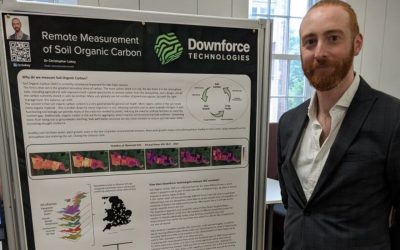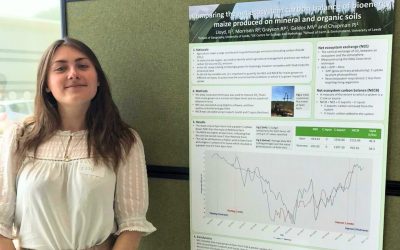As soil scientists we know that of earth’s enormous volume, life depends on a very thin living skin, the soil. But across one third of our land soil is degraded and we need a paradigm shift in how the critical importance of soils is understood. We should be talking about endangered and, unfortunately, extinct soils, just as we use these terms in relation to species. We should be talking about the inescapable link between human, societal and planetary health and the health of our soils, the Soil Life Nexus – there can be no life without soil, and no soil without life.
Earlier this year we held a soil policy day as part of the 22nd World Congress of Soil Science, which drew together an expert group of invited speakers, policymakers, academics, regulators, advisers, politicians, scientists, students and industry. Focused on solutions and contribution to environmental targets, such as net zero; climate change mitigation and adaptation; food security and biodiversity recovery, the day facilitated knowledge exchange and engagement.
Our diverse speakers agreed that rather than focusing on personal, local and regional agendas, it is essential we think nationally, internationally and globally and highlight the real societal costs, such as inadequate nutrition, of soil pollution to government.
However, significant progress is still needed to put into place policy at a strategic level such as the Zero Pollution Action Plan for Air, Water and Soil, as well as at an operational level to protect and restore our soils, to adopt sustainable soil management practices, identify and remediate contaminated sites and improve the monitoring of soil quality.
Last year, the British Society of Soil Science (BSSS) attended COP 26 for the first time as a Non-Governmental Organisation (NGO) after being invited to observe the proceedings at all UN Climate Change Conferences.
However, without well managed soil, the UN Sustainable Development Goals are unachievable: whether that is related to food security, managing erosion and soil runoff so we have clean water and sanitation, or as linked to good health and wellbeing.
This year as we head to Egypt for COP 27, we recognise that there is still lots to do to facilitate discussion with policymakers. We don’t believe that our asks of international governments have changed dramatically since the last COP, and that we still need to:
- protect and enhance existing carbon stores in permanent grasslands, moorlands, wetlands and woodlands
- support the adoption of regenerative and sustainable soil management practices to increase soil carbon sequestration and thus improve soil health and resilience and the provision of financial incentives for these schemes
- support and fund soil research and its dissemination
- support global recognition and accreditation of soil scientists
- ensure global reinforcement of soil regulation.
However, the soil policy event we held has taught us that there are significant barriers to those asks and to change them, we as soil scientists must take the lead in raising awareness and building an understanding amongst policymakers, raising ambition and working in partnership to build a case for soil and developing policies and delivering on policy development at both strategic and operational levels.
In practice, this means taking collective ownership for the state of our soils and work as a scientific community to lead the way by being clear what the evidence is, what it means and what the options are for implementation. Although it is not our role to set any government’s policy; it is our role to make sure governments and policymakers have the evidence they need to understand the issues and make the right decisions to support a truly sustainable future.
____________________________________________________________________________________________________________________________________
The full policy report summary and COP 27 Discussion document is available here.
The British Society of Soil Science has committed to be a ‘carbon positive’ organisation by 2030. Whilst we agree how to make these changes in an effective and sustainable way, we will be offsetting the carbon from our flights via Ecologi.





